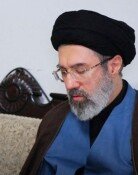Gov`t vs. Liberal Superintendants
Gov`t vs. Liberal Superintendants
Posted June. 07, 2010 13:29,
The Korea Institute for Curriculum and Evaluation will use the same questions found in textbooks of Educational Broadcasting System in the math section of the college entrance exam only by revising figures for the 2011 school year. It will also include at least three questions based on the same texts sourced from EBS textbooks in the foreign language section of the exam.
These are part of efforts to curb and reduce private education, a top agenda of the Lee Myung-bak administration, but fears are high that this measure will have a significant negative impact. This type of educational policy runs counter to the global trend, wherein questions are designed to assess creativity rather than memorized knowledge and to evaluate critical thinking rather than techniques to avoid the wrong answer. If the difficulty level of questions is made equal, students in the higher echelon of performance could suffer damage, spawning potential fears over equity.
It is shortsighted to expect that setting questions only by slightly revising phrases from EBS textbooks will help reduce private education. Private tutoring meant to teach techniques to solve EBS questions has already emerged. Chances are also high that private tutoring will focus on questions set from sources other than EBS. The conservative Lee Myung-bak government is effectively competing with educational superintendents elected pledging a progressive ideology.
The government must ask itself whether it has exerted at least 10 percent of its efforts to curb private education to improving public education. What educational authorities should do is study how to cultivate and measure creativity and critical thinking through public education. Creativity and critical thinking are skills not fostered through private education. Educational policy that seeks to transform questions from EBS textbooks into expected questions for the college entrance exam will be just as harmful to public education as private education.
Six elected educational superintendents with progressive ideologies offered free school meals in their election pledges. They want to put the brakes on educational policy, which the government has pushed to help reinforce school self-autonomy. Kwak Noh-hyeon, educational superintendent-elect of the Seoul Metropolitan Office of Education, has pledged to outright dismantle or convert into general high schools the foreign language high schools that the government has sought to reduce. He also hinted at revoking the designation of autonomous private high schools that violate conditions for designation and relevant laws. The law, however, stipulates that once designated, such schools cannot have their status revoked for five years. Changing educational policy according to the ideological propensity of educational superintendents is a reckless act that only adds to confusion and damage on schools and students. The government is effectively seeking to weaken a plan to raise educational excellence in the name of fighting private education, while progressive superintendents are taking a step further.
The pledge to ease educational gaps made by progressive superintendents can generate good results if the policy is in the right direction. Changing educational districts is also necessary as Kwak hinted at. To resolve educational gaps, however, the focus is not to restrain students who perform better but to help those lagging behind.







